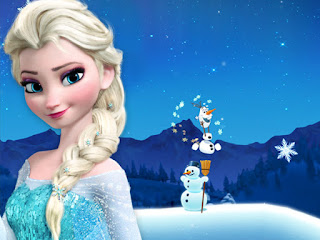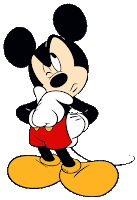
Saturday, April 22, 2017
Final blog
So this is the final blog. There is a lot we have done this semester
in Decoding Disney. Villainy and heroism, gender and racial equality are the
major topics in the Disney Academia. Starting from the beginning of the semester,
I enjoyed readings of Giroux and Haasen which presented unseen aspects of
Disney for most of its consumers. Although I expected certain criticism of
Disney, but the depth of research and the magnitude of Disney’s impact were out
of my expectation.
Disney is a power empire and it is getting stronger as we
speak. It provides children entertainment which seems so pure and impeccable,
but under close examination it is full of culture heritage that can be either
beneficial or create prejudice in their opinions, claimed by majority of
critics of Disney.
Consumerism was also discussed in class. Being a major
result of capitalistic society, critics argues that Disney is turning future
generations of American into product of consumerism. This statement was
interesting to me because it is hard to imagine any other life-styles besides
consuming through money purchasing in society nowadays.
We watched a series of Disney animation films ranging from the Beauty and the Beast to Frozen. The time lapse between these
movies shows not only progression of Disney animation skills, but also of the
ideologies that lie behind the movies. Racial equality, gender equality and ambiguity
of villainy are certainly improvements presented in recent Disney films. It is
hard to believe how much Disney improved in the past decades, and how much
American society has been looking forward into diversity and equality.
 Disney is an enterprise that focuses on the interests
of the majority. It is to their interest to maximize revenue by creating films
that reinforces public opinions. As time passes, it is clear to see through
Disney’s films that they follow the trend of society instead of breaking it.
Its first South African princess film Moana, is a result of gradual equalization between races in US.
Disney produces entertainment by creating a world of perfection and magic, will
it gain as much success by challenging the currents of society?
Definitely not. Disney is not the representation of righteousness, because
neither is society. Everything in society is a mixed production of nature that
consist unique characteristics.
Disney is an enterprise that focuses on the interests
of the majority. It is to their interest to maximize revenue by creating films
that reinforces public opinions. As time passes, it is clear to see through
Disney’s films that they follow the trend of society instead of breaking it.
Its first South African princess film Moana, is a result of gradual equalization between races in US.
Disney produces entertainment by creating a world of perfection and magic, will
it gain as much success by challenging the currents of society?
Definitely not. Disney is not the representation of righteousness, because
neither is society. Everything in society is a mixed production of nature that
consist unique characteristics.
Equality is pursued by our society because we deem it a
desirable quality; however, under different social structures people might have
completely different opinions about equality. Some might argue that our
democratic society is the best in the world, statistically speaking it
certainly earns a lot of its fame; that is not saying it come without its own
flaws.
Disney has massive cultural power considering its impact
toward children, and our course provided me with many information of it. Disney
as a childhood memory might not seem so pure after all, but with a new layer of
capitalism and social injustice. I appreciate all the scholars’ efforts in
claiming their opinions on Disney which can result in positive progress in society
and raise awareness of the existence of this film giant, that seems to become
part of our identity long ago.
Some of the Giroux article can be find here.
Some of the Giroux article can be find here.
Sunday, April 9, 2017
Frozen movie review
Information about the movie can be viewed here.
Frozen was the first princess Disney movie
that is memorized in my brain. I did not understand reasons behind its
popularity and still remembered it had something to do with the ice bucket
challenge.
The visual effects in the movie
is incredible, the scenery of the kingdom, princess Elsa's dress and ice castle
are all stunning showcase in the movie. The music is gorgeous and brings a
fresh taste of Disney's pursue of freedom.
One thing I remembered clearly
is that I could not identify the villain in Frozen the first time I watched the
film. I can feel the villainy in prince Hans but not a significant one. He
seemed like a decent guy who tries to rise in power but ultimately failed.
He has the intent to kill but princess Elsa also has such power when she
used the ice magic in front of the public forming blades of ice that nearly
hurt the guests.
The movie is inconsistent
sometimes. The development of side characters did not leave an impression to me
or made much a difference in the film. The movie consists a lot of sub plots
and takes a long time for them to converge.
The movie is unlike many other Disney’s
princess movie, there are two princesses in the first place. The movie tries to
make audience pay more attention toward Anna whose story is not very
interesting, sometimes I find her childish arrogance does not actually
accomplish what directors wished.
Interestingly there is also not much love
relationship going on with Frozen’s male and female characters. There is no
true chemical love, to say the least, besides the sister love between Elsa and
Anna. It is an atypical Disney princess film that might invoke controversy.
I was never a devoted fan into Disney’s
Princess movie, but I found the controversial discussion on Disney’s films
interesting. The Han’s twist in the movie certainly confused a lot of audiences
who are expecting Han to be the typical prince in a Disney film.
I appreciate Disney challenging its
traditional love story and still manage to attract audiences and make the film
a global phenomenon. Maybe that is the power of Disney magic.
At this point I am still not quite sure
the reason behind the feverish crowd. Maybe Disney has never made a snow
princess before? But certainly parents were going to take some time to explain
to their kids the reason behind Han’s betrayal.
While many claims Frozen to be the best animated movie of 2013. I have seen more
enjoyable films for myself such as How to
train your dragon. What is certain is that Disney really took different
approaches in the film that is different from Disney Classic: there is no love
interest, but has diversified story lines.
One fundamental reason behind the controversy is that villainy in Frozen is not convincing and undesired by parents. There is no clear separation
between good and evil but I have to give credit to Frozen for this confusion because
it does represents the ambiguity of morality in real life even though the
prince was condemned at the end of the story.
(ps: Sorry this is not the best movie review, quite busy this weekend with 5000 words due, while that is college right :D)
(ps: Sorry this is not the best movie review, quite busy this weekend with 5000 words due, while that is college right :D)
Saturday, April 1, 2017
TRON reboot expectation
I loved the tron movie when I watched it years ago with its amazing visuals, but now I am more excited for the reboot. Speculations can be viewed here. 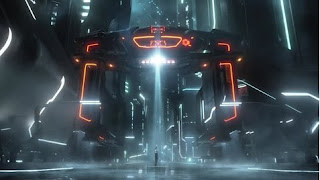

Response on Hastings' article
More information about the film can be viewed here.
This week we had the pleasure of reading and discussing an interesting conference article written by Waller Hastings on Disney’s movie Pocahontas. The movie was under controversial criticism by many critics arguing it being a positive or negative portrayal of American history and Native American.
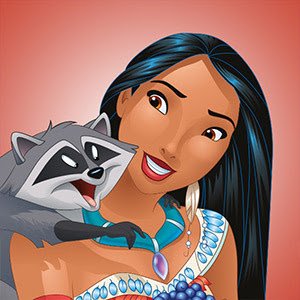 After all, Disney is doing its best to attract customers to
buy its product. Although the majority of consumers in late 20th
century might be white population, as the income gap decreases Disney will
concern more for critics’ claim and others raising ethical group consumers. It
is a sad way to put it, but in the business world, the so called “moral high ground’
is not always advantageous.
After all, Disney is doing its best to attract customers to
buy its product. Although the majority of consumers in late 20th
century might be white population, as the income gap decreases Disney will
concern more for critics’ claim and others raising ethical group consumers. It
is a sad way to put it, but in the business world, the so called “moral high ground’
is not always advantageous.
This week we had the pleasure of reading and discussing an interesting conference article written by Waller Hastings on Disney’s movie Pocahontas. The movie was under controversial criticism by many critics arguing it being a positive or negative portrayal of American history and Native American.
Hasting argues in the article that although Disney claimed Pocahontas is its first historically
accurate film, there exists a lot of transformation and distortion that
contradict Disney’s claims. It is important for audiences to understand these
differences and the power of Disney.
Hastings is able to create strong arguments in his writing,
including finding contradictions in Disney’s claims. For example, the
exaggeration in visual scenery and changes in main characters’ ages are the
opposite of Disney’s “research” of Virginia and characters’ in the history.
In fact, Hasting believes that the story of Pocahontas has
become a legendary tale that has multiple versions of story instead of factual
depictions of historical events. Disney’s effort in portraying the event as “correctly”
as possible is itself an inefficient approach. Furthermore, Disney emphasis on
their effort of truthfulness, though genuine, is laughable for many critics. 

When the motivation of a company is to create entertainment
and make money, accuracy is not part of audiences’ expectation and that is why
Disney was able to escape many criticism by setting the background story of a
movie to “ a kingdom far away”. However, Disney entered a dangerous realm when
it tried to create extra attraction for consumers who care for history. In that
case it will be the parents who want their children to get educational benefit.
The motives behind Disney for the creation of Pocahontas can be diverse: make the
movie more educational, create racial equality…etc In the end, children will
not remember the history but only the Pocahontas
Disney presented to them. As many critics claims, Disney has the responsibility
to be educational and accurate, I doubt it will ever be part of the standard in
film industry. Externality, or side-effects, created by Disney’s films on
children can be influential but in the current system there is no way of
quantifying the influence nor judging the minor mistakes Disney has made in its
movie.
 After all, Disney is doing its best to attract customers to
buy its product. Although the majority of consumers in late 20th
century might be white population, as the income gap decreases Disney will
concern more for critics’ claim and others raising ethical group consumers. It
is a sad way to put it, but in the business world, the so called “moral high ground’
is not always advantageous.
After all, Disney is doing its best to attract customers to
buy its product. Although the majority of consumers in late 20th
century might be white population, as the income gap decreases Disney will
concern more for critics’ claim and others raising ethical group consumers. It
is a sad way to put it, but in the business world, the so called “moral high ground’
is not always advantageous.
Thus, Disney, critics and consumers all play roles in
social progression. Folks in Disney are part of society and if the society is
racially biased, how can people in them not be? To ask Disney to change is to
ask society to change. The problem is that younger children who are watching
Disney movies might not understand the underlying messages in them, and the
traditional biased trend can carry for a while in media and it is our job to
correct the trends and create progress.
Friday, March 24, 2017
Tuesday, March 21, 2017
Aladdin movie review
For people reading the blog that
have not watched the movie, which is probably very few, here is a quick summary
of the plot. Aladdin lives in the city of Agrabah, who has to steal food to survive.
After freeing the lamp and three wishes granted, the evil force
arrives and Aladdin needs to save his love, Princess Jasmine and an adventure
unfolds.
Aladdin is considered an all-time
Disney Classic and it deserves such title. The music and humor in the movie
provides wonderful entertainment toward children. Brilliant performance by individuals
in the movie such as Robin Williams makes characters extremely entertaining to
watch.
 However,
racial generalization in the film passes right through the heads of audiences
without realizing its potential implications. Aladdin as an early Disney
production does exhibit traits of racism. In the song “: Oh, I come from a land
From a faraway place Where the caravan camels roam. Where they cut off your ear
If they don't like your face It's barbaric, but hey, it's home.” Critics
have continually blamed Disney for demonizing races in its earlier productions
and Aladdin is one that takes a lot of the heat. The New York Times countered
Disney and said, “To characterize an entire region with this sort of tongue-in-cheekbigotry, especially in a movie aimed at children, borders on barbaric.”
However,
racial generalization in the film passes right through the heads of audiences
without realizing its potential implications. Aladdin as an early Disney
production does exhibit traits of racism. In the song “: Oh, I come from a land
From a faraway place Where the caravan camels roam. Where they cut off your ear
If they don't like your face It's barbaric, but hey, it's home.” Critics
have continually blamed Disney for demonizing races in its earlier productions
and Aladdin is one that takes a lot of the heat. The New York Times countered
Disney and said, “To characterize an entire region with this sort of tongue-in-cheekbigotry, especially in a movie aimed at children, borders on barbaric.”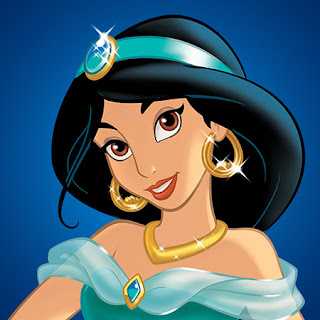 This conflict is saddening because Disney
produces goods that attract the public. Back in 1992, racism is still a social
trend that could not be easily broken off. Instead of saying Disney is the one
to blame, the public itself should improve as a whole because Disney is not an
advanced philosophical palace; it is not a world that contains all truth; it
is, however, a reflection of populism. Even at present day, audiences hardly
realize the stereotypical depictions in the movie, instead, they remembered them
as a childhood movie that provided happiness and joy.
This conflict is saddening because Disney
produces goods that attract the public. Back in 1992, racism is still a social
trend that could not be easily broken off. Instead of saying Disney is the one
to blame, the public itself should improve as a whole because Disney is not an
advanced philosophical palace; it is not a world that contains all truth; it
is, however, a reflection of populism. Even at present day, audiences hardly
realize the stereotypical depictions in the movie, instead, they remembered them
as a childhood movie that provided happiness and joy.
Although
Disney may not be completely at fault, I am not denying that such criticism is necessary
and much needed for American public to realize the underlying racism in movies,
books and memories. In fact, Disney is never perfect even though the
corporation tries the hardest to please the public. Even so, Disney hardly acknowledge
their potential mistakes, but decorate their creations as wonderlands with
purity. In marketing perspective, yes, it is good for business. But when the imaginary
bubbles break in front of their consumers, the consequences can be influential.
Over the
past decades Disney has improved tremendously in its stand on racism. With the
new Moana movie with the first South African princess as protagonist and
upcoming reboot of Mulan, Disney is taking huge steps on following up the
social trends that push for racial and gender equality. And it is our job as
the public to let Disney realize that the public wants stories of globalization
and equality of races, genders and sexuality instead of hierarchical and biased
tales.
Overall,
I enjoyed the movie and admittedly, the racist propaganda is indeed easy to get
into audiences’ mind. The humor and the addictive soundtrack were enough to
make me whistle along through the movie.
Further information about Aladdin can be viewed here.
Sunday, March 12, 2017
Beauty and the beast review
Happy spring break everyone!
Although the movie is not released in most cinema yet, my favorite movie reviewer on Youtube has already watched it and given it a wonderful review. If interested, come check it out!
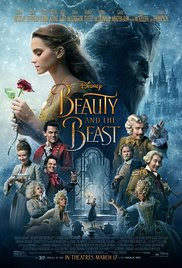

Although the movie is not released in most cinema yet, my favorite movie reviewer on Youtube has already watched it and given it a wonderful review. If interested, come check it out!


Disney blog post on Logan
SPOIL ALERT:
This past weekend I stayed in my friend’s home at Philadelphia.
The weather was incredibly cold even though I lived in Connecticut for four
years, maybe it was I travelled a lot during the past two days. I visited university
of Pennsylvania and University of Drexel, not really a campus for either one,
but I enjoyed their facilities. 

Now I just got back to New York, staying in my friend’s dorm
in NYU. Cozyyy. Besides eating good foods, I enjoyed the new Marvel movie,
Logan. As a Marvel fan, the ending chapter of wolverine starring Hugh Jackson
was something that went beyond the simple identification of hero from
traditional Marvel standpoint.
I really appreciated the ambiguity of heroes in the film as
they condemned themselves in the movie because of their behaviors. Professor X
is characterized as a criminal because of his brain instability, and when the
seizure happened in the mall, professor was beyond desperate by his
unintentional killing of several innocents. Wolverine claimed that hero did not
exist to his daughter and said to others” You don’t know me.” His deny of
heroism was presented in his film as he faced many plights: between saving
Professor X or the girl, saving the group of Children or take the money and
leave.
All the options Logan chose were self-serving and saddening
in the film, which is the general tone of the film. However, the villains in
the movie can be easily identified and the reasons behind are not very sounded.
The reason behind them is to create human weapons in the 22th century with
super human abilities. It is hard to believe such weapon is needed or even
powerful enough to stand against modern weapons. The ultimate “weapon” in the
movie is a clone of the younger wolverine that can be easily put down by a
driving vehicle or firepower. 

Though failed in creating great villains, this movie
presented a fantastic and refreshing view of the marvel universe, where there
is no fairy tale or imagery sanctuary, but only people who have incredible
persistence and hopeful spirit that compel them to achieve something extraordinary.
Logan is not a
typical Disney or Marvel film. Its story-telling is both realistic and
artistic. In finding the imagery safe-haven “Eden” for the girl, Wolverine’s
viewpoint of the world changed as he realized that dreams can happen as long as
people put sweat and blood into the ideals.
The candle of hope was transferred from the older generation
of X men to the youngsters, who were able to escape from the cruelty of the
weapon corporation and begin new lives. The sacrifice in the movie was immense
as all the well-known X-men faded into history. Logan, in many way, is a
combination between Manchester by the sea, and Rogue One. Family, sacrifice,
hope are all important element in the film and it deepens the messages. 

I enjoyed Logan very
much even with its flaws. It reflexes progress Marvel and Disney are making in
their film production. They not only provide an entertainment in these films
but also input critical moral values that are important for society.
More information can be viewed here, the film is quite bloody and tragic overall, but I would absolutely recommend this movie.
Saturday, March 4, 2017
Beauty and the Beast controversy
Some progress are made in Disney production on LGBT community, but it can be a set back because Disney is setting the Villain as a gay character. More can be seen here,


Sunday, February 26, 2017
Friday, February 24, 2017
Transgender villain
Although
villains in Disney comes from different imaginations, they always have similar
characteristics and appearance: harmful, deviant appearances, and abnormal
actions. However, many similarities are under the same category, transgender behavior.
As
Putnam stated in Mean Ladies, many Disney
villains exhibit transgender identities, or lack of gender identifications. For
example, Anastasia in Cinderella as a young lady seems over masculine with her
large feet and lady Tremaine’s facial features and behaviors mark her as both
unfeminine as well as unmotherly.
Sometimes,
females that are overly feminine are also marked as villains. Ursula in the Little mermaid is an example of
overly feminist with large breasts and abnormal body appearances.
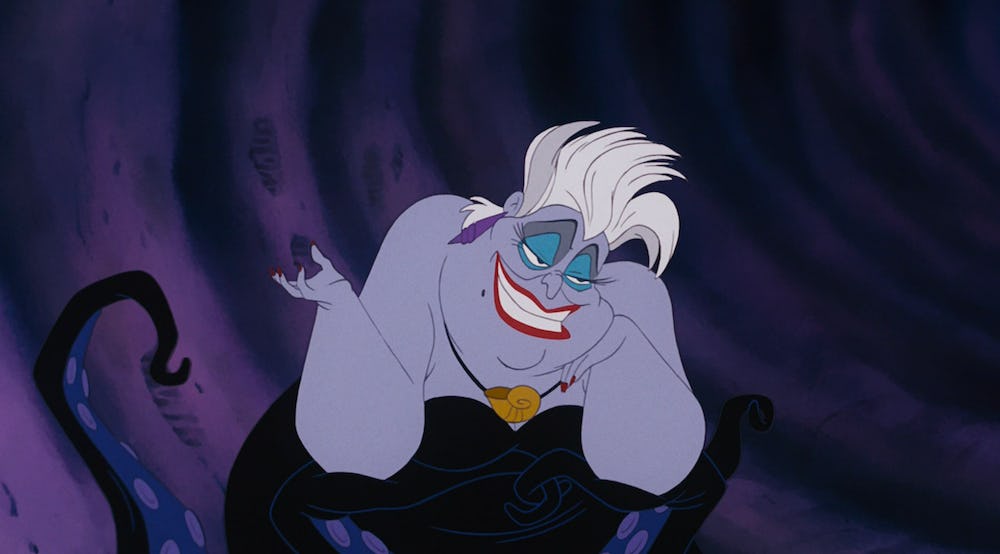
However,
male characters that are overly masculine are rarely criticized in Disney’s
films. In Beauty and the Beast, the Beast is portrait as a character that is a
hero in its heart; however, such quality does not apply to female over-feminist
characters. One may conclude that sexism is at present in early Disney’s films.
I
found Putnam’s passage to be effective and her viewpoint seems unique to me.
Her analysis on Disney villains is able to identify the ill relationship
between gender identity and morality. I am surprised at how clear Putnam
showcased Disney’s strategy in villain building and it certainly brought a refresh
experience to me.
Do
I blame that Disney characterized villain as people who have transgender identity?
It is a hard question to answer because transgender is a minority in society
and for Disney it just seems to be the easiest way to signal audiences who the
identification of characters in movies. Human are based on value appreciation
from society and the more qualities that are similar, the easier to be
appreciated. On the other side, minority identity group are not at advantage in
modern society because they have less in common with the majority.
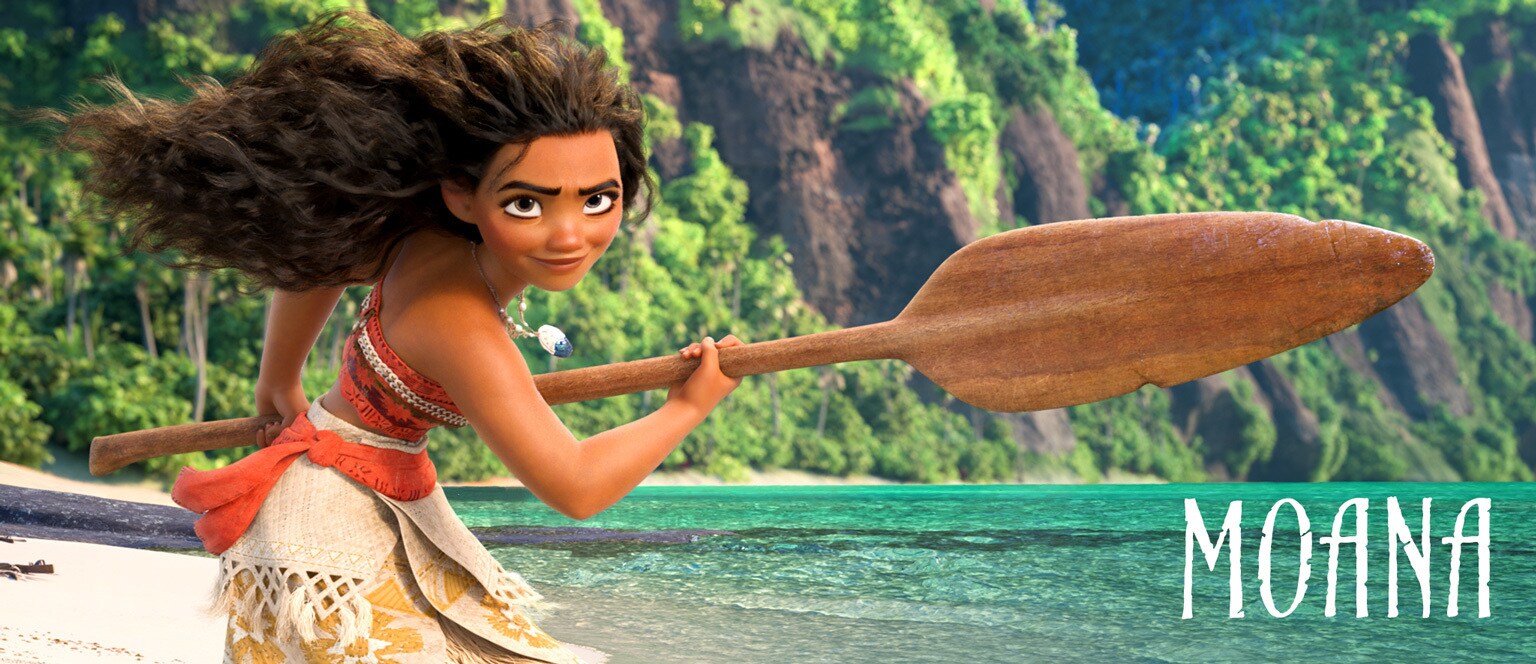
I
can understand Disney’s motives behind its approaches, but they do not
necessarily present accurate messages. People have different genetics and
Disney’s ideal of perfection is a misleading information for younger
generation. As Putnam discussed, creating villains that are based on heroines
is irresponsible. Even more, with constant reinforcements, such messages will
eventually become a natural reflexes for audiences not only in movie watching
but also in real world interactions.
However,
Disney is an enterprise that focuses on the interests of the majority. It is to
their interest to maximize revenue by creating films that reinforces public
opinions. As time passes, it is clear to see through Disney’s films that they
follow the trend of society instead of breaking it. Its first African princess
film Moana, is a result of gradual
equalization between races in US. Disney produces entertainment by creating a
world of perfection and magic, will it gain as much success by challenging the
currents of society?

It
is hard to break off a negative moral spiral, and it is even more so when financial
interests are involved. Disney has massive cultural power considering its
impact toward children and its earlier recipes of villains should be carefully
amended to entertain and instruct younger audiences. And base on its recent
progression, I am certain that Disney is able to achieve this goal.
Information on new Disney movie can be seen here, and let us hope that Disney can constantly improve its message toward the youth
Monday, February 20, 2017
Cinderella(1950): A classic film for now and always
As one of the most
beloved animated Disney films in 1950, Cinderella has left a deep impression
for me. I watched the reboot of Cinderella a few years ago and it is hard to
believe the 1950s had such amazing visual designs. The stylings of Cinderella
produced by Mary Blair gave such a magical, dreamlike quality that makes me
engage into the movie.


Although it did not have the most realistic ideology,
"No matter how your
heart is grieving, if you keep on believing, the dream that you wish will come
true",
the story itself is instrumental for children’s development and
being optimistic is helpful in dealing with situations.
As a wonderful and almost flawless tale, Cinderella’s small
characters such as Bruno the dog, Lucifer the Cat and especially Gus the mouse
certainly added an element to the beloved story.
The wonderful music and sounding in the movie helped to evoke
audiences’ emotions and affection to certain characters.
The usage of color contrast between villains(step mother, the
cat) and Cinderella is decisive and can easily create character stereotypes as
the bright and dark side of the story.
 I appreciated the brilliant animation, the clever plot
turns and humors. The animation is very well done, and brings me right into the
scene with characters. The animation also does well portraying the styles of
the backgrounds, at Cinderella’s home and the grand ballroom of the kingdom.
The humor from the mice is a fundamental element in the movie that was one of
the spotlight in the film
I appreciated the brilliant animation, the clever plot
turns and humors. The animation is very well done, and brings me right into the
scene with characters. The animation also does well portraying the styles of
the backgrounds, at Cinderella’s home and the grand ballroom of the kingdom.
The humor from the mice is a fundamental element in the movie that was one of
the spotlight in the film
The movie is not made
for accurate depictions, but to bring audiences into the life of Cinderella and
see her lovely characteristics and cheerful spirit even in miserable
situations.


Something about this movie just evokes the magic of Disney. And
it was the reason behind further successes in Disney’s films.
Although I do not find
Cinderella as my style of movie, I can see why it had been such a popular
children film in the past half a century and continues to be an ever-lasting
tale.
However, Disney’s films might seemed slightly redundant, where female
characters were always saved by male protagonists. Although Cinderella is an
optimistic, hard-working and loving lady, she is not able to escape from her living
condition and continues to be tormented by her step mother until the Magic of
old lady saved her.
The unrealistic side of magic showed the fact that women at that time
period were still not strong enough to make a difference for themselves and
these messages can be viewed as biased; however, it is an accurate description
of women in 1940s where they required the support from men.
As magical as it seemed, Cinderella is still a product of the
decade and cannot escape some of the biases. However, Disney’s magic is
constantly evolving and its movies nowadays have much more dynamic within the
women characters.
Cinderella is
definitely a classic animation that fully represented Disney’s values in its
production: fun, idealistic, and fantasy-like wonderment, its goals are to
attract, inspire, and entertain youngsters while bring them into a fantasy land
where hope and magic are essential parts of the universe. And the magic
remained in many peoples’ hearts.
Sunday, February 19, 2017
James Earl Jones and Donald Glover to Star in Live-Action Remake of “The Lion King”
The remake of 'The Lion King" will be legendary with these two incredible singers.
More information is here.
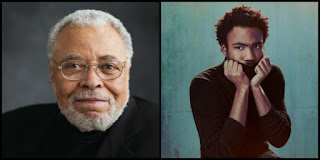
More information is here.

Rivers of the light
 Disney's animal kingdom just had a beautiful night time event called "Rivers of the light". The scenes were stunning. For more pictures click here.
Disney's animal kingdom just had a beautiful night time event called "Rivers of the light". The scenes were stunning. For more pictures click here.
Saturday, February 11, 2017
Comparasion between Hiaasen and Giroux
Hiaasen and Giroux, two iconic
critics of Disney, have very different approaches in terms of evaluating the
"evil" deeds of Disney and I found both writing styles to be very
thoughtful and entertaining. People may prefer one over the other, and the
reason behind it is the drastic difference between authors' intended
audiences.
The audiences, Giroux wanted to reach are probably people
who value a critical analysis of Disney. Giroux is able to present the broad
picture of Disney and many negative effects of other multimedia corporations.
He provides logical reasoning against the norm of praising Disney's
entertainments, sometimes using statistical facts and sometimes in discussions
of Disney's social responsibility.
Although some languages in Giroux's articles have a spice
in them, the majority of the passages are objective to the point with a
critical view of capitalism market structure.
Hiaasen, on the other hand, perhaps hoped for audiences who
would enjoyed a good laugh or a chill down the spine. He viewed Disney in a
much closer perspective.
Instead of condemning on the capitalism itself, Hiaasen
provides his own fascinations of Disney combining with facts. Using descriptive
wordings, Hiaasen presented a vivid presentation of how Disney shaped the
United States, if not the world. 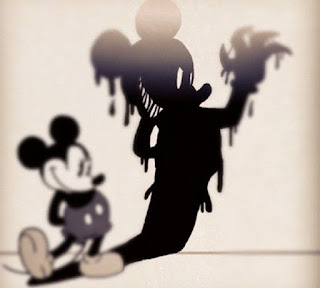

Many examples in the book Team
Rodent are author's first-hand experience with Disney, and
these instances bring proximity to reveal the Disney Hiaasen has in mind:
a self-evolving and expanding mouse that slowly rules the world in every
possible angles. Examples of security team chasing teenagers, investigation on
actors' backstage and invitation of journalist to Disney Land reflex just how
powerful and omnipotent Disney can be.
Of course, wordings in the book are meant to attract audiences’
attention and trigger their emotions, but these event are indeed accurate which
is even more repulsive to think about.
Although their intended readers are different, two authors
are excellent in expressing their own believes. However, sometimes opinions in
the readings are too biased which are hard to follow with furious storms
of attack on Disney. Maybe I might not be the intended reader after all.
Both authors have strong arguments and I
appreciate their efforts in evaluating the issues they perceive in Disney. One of
many factors both writers mentioned in their articles is the lack of governmental
regulation which is a fundamental reason behind “accidents” happened in Disney.
As mentioned in Team Rodent, state government granted almost every wish of Disney.
If it were other corporations making deals with government, I can imagine how
difficult it will be for them to gain such a favor. Perhaps Disney’s camouflage
is really working to gain itself advantage over bargains.
After all, I find both writing styles efficient in their
own manner and audiences can have their preferences as well. Giroux’s writing
style is suiting for me because of its logical criticism are clear and dynamic. In
addition, it dives in many fundamental issues we face in America nowadays such
as the rising online social platforms and spreading fever of consumerism toward
children.
Disney earnings quarterly release
It seems that Disney earning declined about 3% from previous year's earnings. But I am sure that the new movie such as Guardian of the galaxy 2 and avengers will strength Disney's current position.
More information can be viewed here.
More information can be viewed here.
Avengers infinity war "first look"release!!!
After 10 years of continual development of marvel heroes, it comes to this grand moment where guardians of the galaxy, spider man, and many other hero franchises joining together to fight for the survival of this universe. I am beyond excited after seeing the magnitude of collaborations and it will be my most anticipated movie of 2018.
The trailer can be viewed here.
Saturday, February 4, 2017
After Marvel was purchased by Disney, the movie production quality has gone out of the roof. The up-coming film, Guardian of the galaxy, will be released on May, 5th, 2017. Guardian of the Galaxy is one of my favorite Marvel film and expect of it highly. Other great movies from Marvel are coming out as well, you can see the list here.
Wednesday, February 1, 2017
Response post to Giroux article (Aug, 21, 2011)
Henry Giroux, a well-known critic of Disney company, composed a well-crafted article in counter Disney's marketing agressive strategy and its role in society, especially its impact on children. The article can be viewed here. However, I am not in accord with many of his ideologies.
First of all, Giroux's work is admirable. He attempted to explore the core issues facing today's children education and their role in society. Major influence of children comes from the massive multimedia corporations nowadays, as he claimed in the article.
Giroux also believed that, Disney, as the leading corporation in youth market, has created large impact in children's development and understanding of the world. In addition, these influence are highly tided toward consumerism, which is not to the best interest for children. He also criticized the segregation of public goods and many other effects of corporation culture.
I agree with Giroux that corporations like Disney has a large influence on children, but they are not necessarily bad impacts nowadays. As Disney as a corporation developed, it learned a lot of mistakes and progressed in ideologies it spreads. From the 1950s racism and gender theme, Disney is able to expand and spread much more diverse and liberal messages.
However, Disney did not spread these topics because it believed they are good messages. Disney is simply the reflection of its current popular culture. To maximize its profit, Disney needs to follow the spontaneous public opinions. It is not Disney's responsibility to be the forerunner of ideas. Their targets are youth population, and in order to attract their attention, Disney focuses on " what works" instead of "what will work".
I do not see Disney intention as good or bad, but simply it follows the principle to survive as a entertainment corporation: to follow public taste. Without such connection with the majority, Disney will never able to come back from bankrupt situation in the 80s, and the corporation certainly learned its lesson.

The problems Giroux raises are very subtle to catch as they relates to topics surrounding human morality, which is very hard to define what is acceptable. Problem of Disney is a large part of a much gigantic and deep-rooted problem that lies in many capitalism states structure. And this problem will persist just as humanity constant struggle in developing a fair and equal society.

First of all, Giroux's work is admirable. He attempted to explore the core issues facing today's children education and their role in society. Major influence of children comes from the massive multimedia corporations nowadays, as he claimed in the article.
Giroux also believed that, Disney, as the leading corporation in youth market, has created large impact in children's development and understanding of the world. In addition, these influence are highly tided toward consumerism, which is not to the best interest for children. He also criticized the segregation of public goods and many other effects of corporation culture.
I agree with Giroux that corporations like Disney has a large influence on children, but they are not necessarily bad impacts nowadays. As Disney as a corporation developed, it learned a lot of mistakes and progressed in ideologies it spreads. From the 1950s racism and gender theme, Disney is able to expand and spread much more diverse and liberal messages.
However, Disney did not spread these topics because it believed they are good messages. Disney is simply the reflection of its current popular culture. To maximize its profit, Disney needs to follow the spontaneous public opinions. It is not Disney's responsibility to be the forerunner of ideas. Their targets are youth population, and in order to attract their attention, Disney focuses on " what works" instead of "what will work".
I do not see Disney intention as good or bad, but simply it follows the principle to survive as a entertainment corporation: to follow public taste. Without such connection with the majority, Disney will never able to come back from bankrupt situation in the 80s, and the corporation certainly learned its lesson.

As a corporation in one of the most capitalism state, Disney is doing almost everything right. The problem is not of Disney, but the system of capitalism itself. Capitalism does not value social responsibility or impacts caused by individual action. As corporation like Disney might create after-effects, it is the time and place where government needs to step in and regulate on the extend of the impact.
As Giroux pointed out, Disney subconsciously promotes consumerism to children through its marketing tactics. According to the current regulations and laws, Disney is not violating any rules, but in ethical grounds Disney might create negative impact to children.
The lack of analysis and action from government contributes greatly toward this problem. And U.S government is much more problematic than Disney's, where interest groups can impediment or push laws to their advantages, government simply will not act, and subtle tactics like Disney's is far below convincing evidences that signal governments to step in.
As Giroux pointed out, Disney subconsciously promotes consumerism to children through its marketing tactics. According to the current regulations and laws, Disney is not violating any rules, but in ethical grounds Disney might create negative impact to children.
The lack of analysis and action from government contributes greatly toward this problem. And U.S government is much more problematic than Disney's, where interest groups can impediment or push laws to their advantages, government simply will not act, and subtle tactics like Disney's is far below convincing evidences that signal governments to step in.
The problems Giroux raises are very subtle to catch as they relates to topics surrounding human morality, which is very hard to define what is acceptable. Problem of Disney is a large part of a much gigantic and deep-rooted problem that lies in many capitalism states structure. And this problem will persist just as humanity constant struggle in developing a fair and equal society.

Subscribe to:
Comments (Atom)







